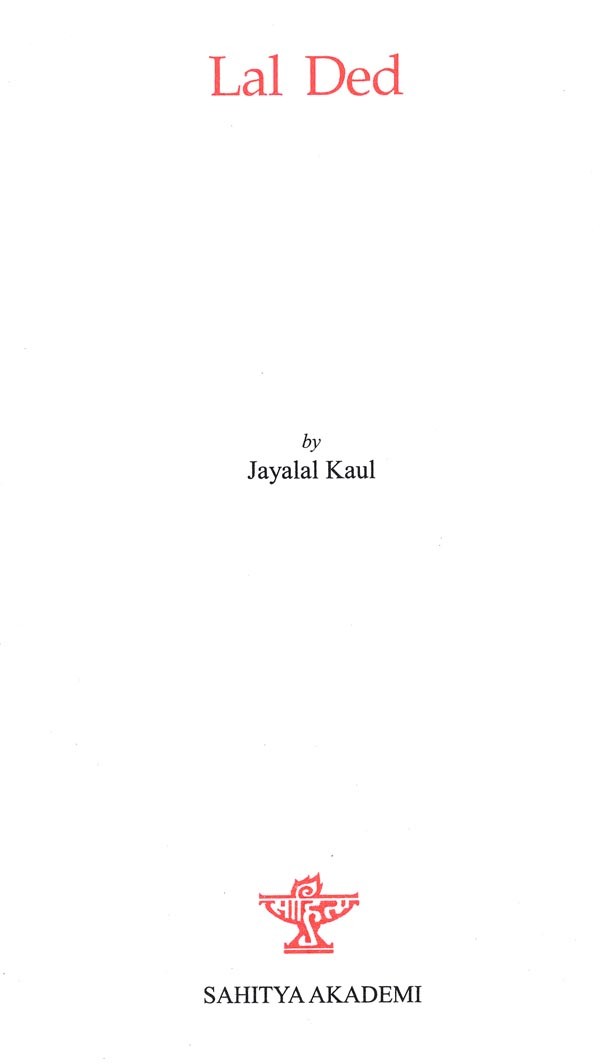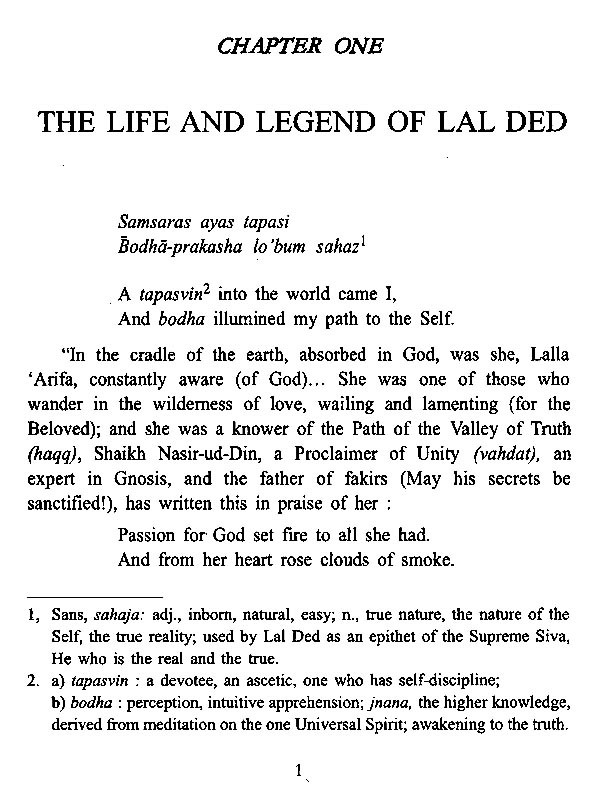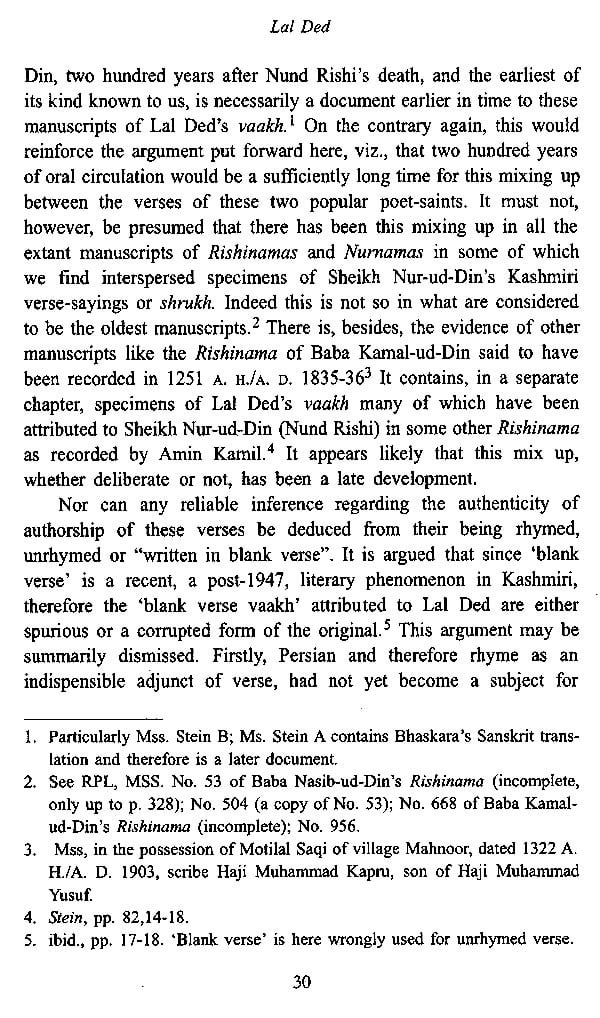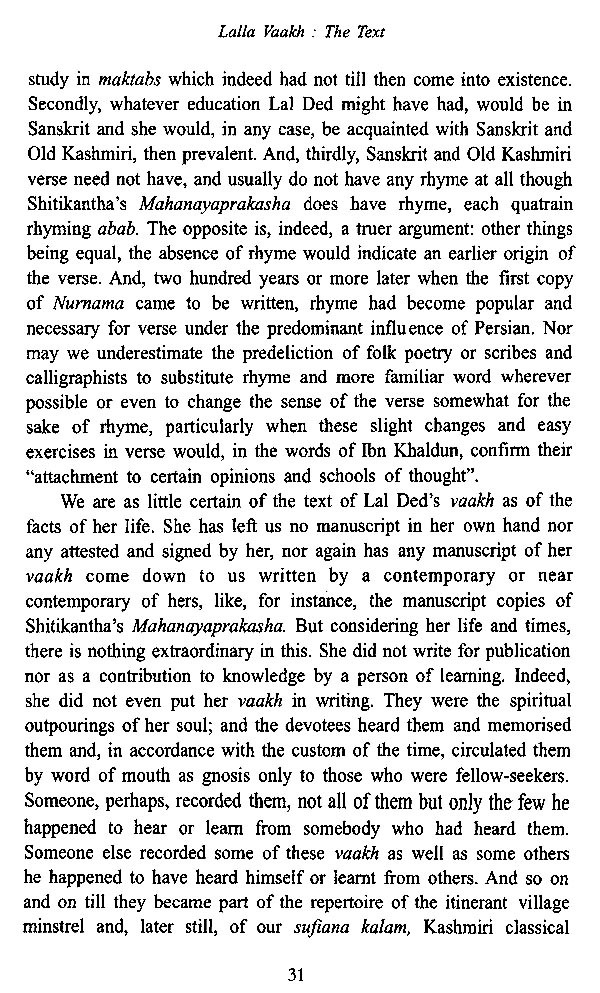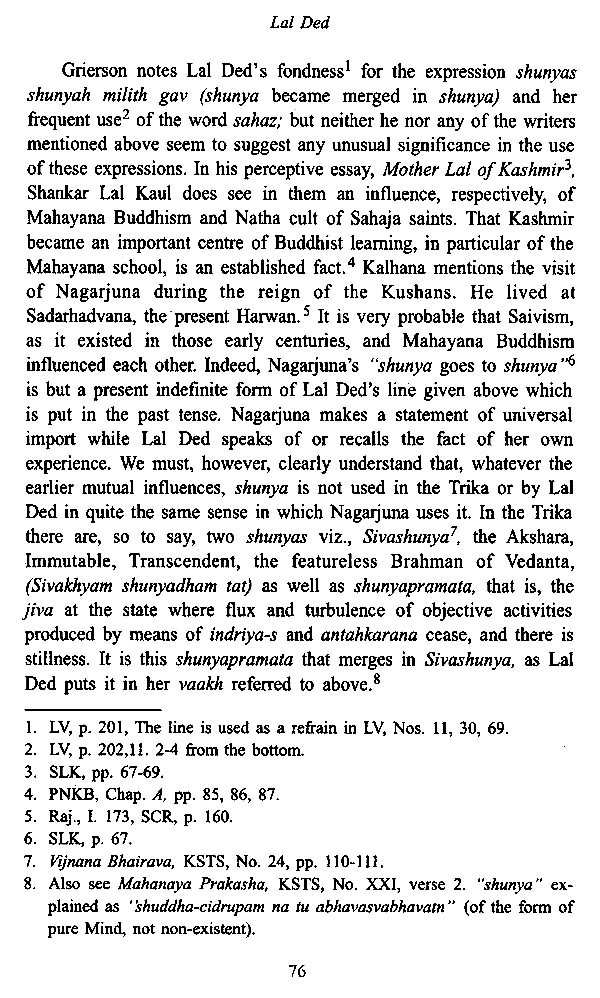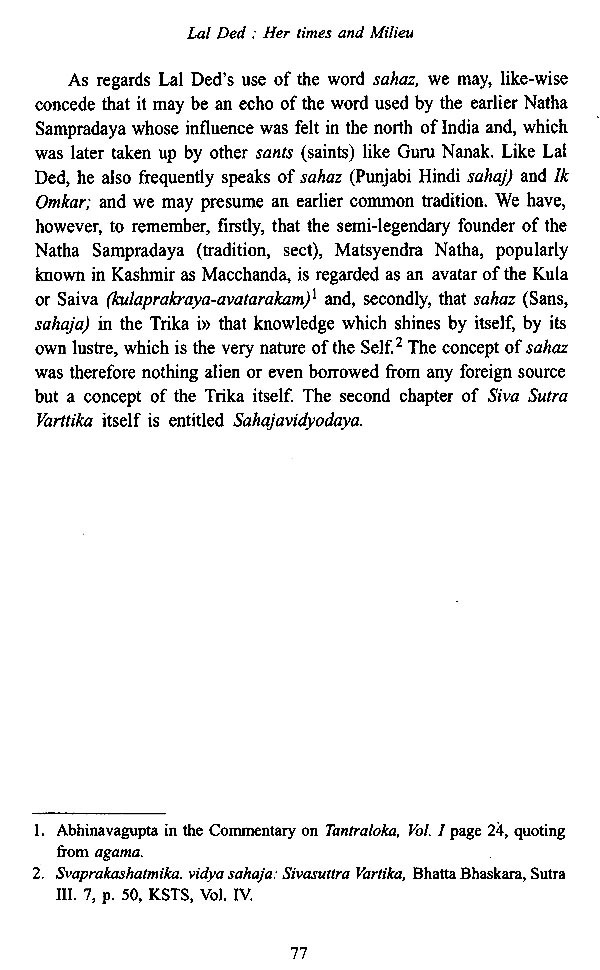About the Book Lal Ded, the Kashmiri saint-poet of fourteenth century, irradiated an influence, impalpable but deep, which had a transforming power, of engendering purity and human brotherliness. Her message found a response among the people irrespective of caste and creed. Her Vaakh established a tradition of harmony and tolerance which is our priceless heritage. There is not a Kashmiri, Hindu or Musalman, who has not some of her l'aakh on the tip of her tongue. Her Vaakh are pithy poems containing spiritual experiences documented in a form which is of immense value to the seeker. They are "inspired speech". Lal Ded was the progenitor of modern Kashmiri. She is the first among the moderns not only chronologically but in the modern quality of interrogation and expostulation in her poetry. Her poetry is modern because it comes alive for us even today.
About the Author Jayalal Kaul (1900-1986) was a distinguished literary critic and scholar from Kashmir who taught English and later headed S P College as its principal. Prof. Kaul, scholar of Kashmiri language and literature, has given his reappraisal of Lal Ded in this work, along with select translations of her Vaakh. Prof. Kaul was a member of the Executive Board and the Convener of Kashmiri Advisory Board of the Sahitya Akademi and also Secretary, Jammu and Kashmir Academy of Arts.
Preface A Reappraisal of Lal Ded was overdue; and I am grateful to Sahitya Akademi, New Delhi, for this opportunity to examine the legends that huddle her life story and generally to re-assess her work and significance. It has been a much tougher and more time-consuming job than I had bargained for. My researches have led me to correct many fond beliefs and opinions held about her. I have had sometimes to re-interpret the text and, at places, to set right the text itself. This applies even to Lallä-Väkyäni (1920) by Sir George Abraham Grierson and Lionel D. Barnett Litt. D., the only scholarly work on the subject up to date.
I gratefully acknowledge the help of Professor P.N. Pushp, who read chapters 1,2,4 and 5, Dr. Balji Nath Pandit Ph. D., who not only read chapters 2 and 3 but spared time to discuss several points of Trikashastra, theory and practice and located a few references, and Professor Mohi-ud-Din Hajini, who read chapters 1 and 2. They made valuable suggestions. I must also record my thanks to Research Officers, Pandit Srikantha Kaul and Maulvi Muhammad Ibrahim, and Sri Ghulam Rasool, Head Maulvi, of the Department of Research and Publications, Srinagar, for helping me to locate references in the Sanskrit and Persian manuscripts of the chronicles in the Research Library.
**Contents and Sample Pages**
